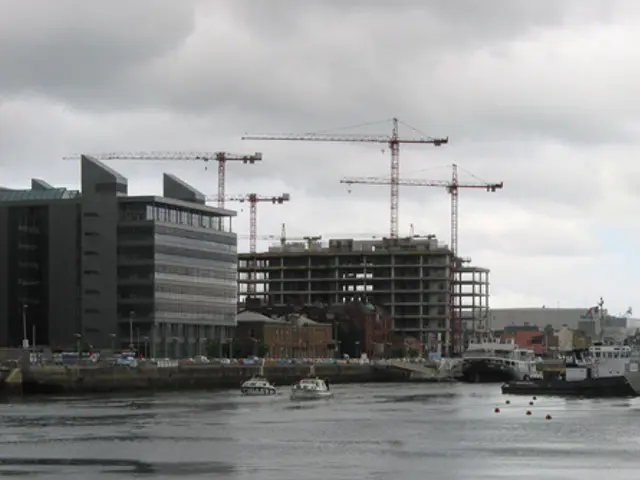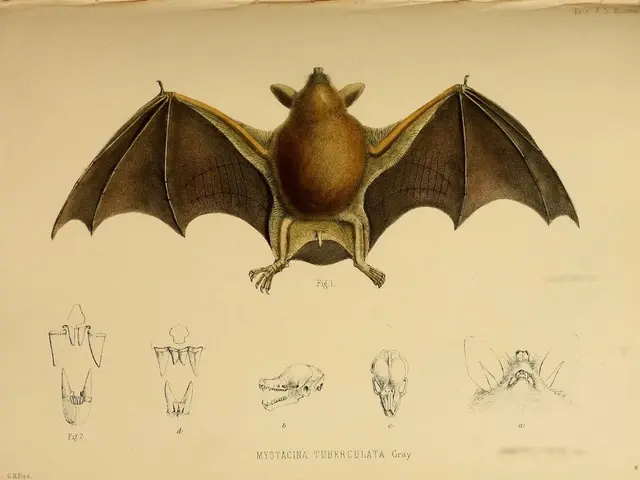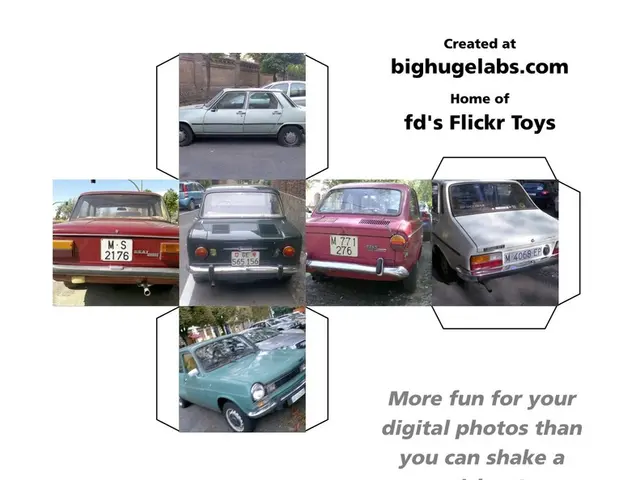Expansion of Local Commuting Systems in Freiburg
Pioneering Public Transportation in Freiburg
Nestled in the heart of Southwest Germany, Freiburg im Breisgau boasts not only a charming old town and picturesque surroundings but also a highly developed and eco-friendly public transportation system. This system has evolved significantly over the past century to meet the needs of the growing population and tackle urban mobility challenges.
A look back at history reveals that Freiburg's public transport system can be traced to the early 20th century, with the opening of the first electric tram line in 1900. Over time, the network expanded, and numerous lines were added to cater to the increasing demands of the population. By the 1970s, the focus had shifted towards environmentally friendly mobility, leading to the introduction of new bus lines and the expansion of the tram network.
Recent decades have seen a consistent investment in expanding Freiburg's tram network. The tram serves as the backbone of the city's public transport, efficiently connecting its districts. New lines and modern infrastructure have significantly enhanced the appeal of the tram network. Extensions to Gundelfingen and the new district of Vauban demonstrate the city's commitment to optimally connecting peripheral areas to the city center.
In addition to trams, buses play a crucial role in Freiburg's public transport system. The bus system has been optimized in recent years to provide citizens with flexible and swift travel options. A significant stride towards sustainability has been the introduction of electric buses, reducing emissions and improving air quality in the city, with plans to transition the entire bus fleet to emission-free vehicles by 2030.
Integrating bicycles into public transport is another key aspect of Freiburg's mobility development. The city has created an extensive network of bike paths and actively promotes cycling as an environmentally friendly alternative. Many tram and bus stops offer bike parking facilities, allowing commuters to conveniently switch between transport modes. Various initiatives also facilitate bike rental and sharing.
Timetables and flexible ticketing systems are essential for the user-friendliness of public transport. Freiburg embraces digital solutions, enabling passengers to plan their journeys and purchase tickets via smartphone apps. "Mobility stations" that bundle various transport options at a single location offer citizens greater flexibility and choices.
As Freiburg continues to grow and evolve, so too must its public transport system. Future challenges include accommodating increased passenger numbers, improving integration of different transport modes, and maintaining the system's environmental sustainability. By embracing innovative solutions and remaining committed to its green mobility goals, Freiburg is well-positioned to meet these challenges and continue providing its citizens with a high-quality, sustainable public transport system.
Freiburg is internationally recognized as a pioneering city in environmental protection and sustainability. The city’s approach to environmental protection is deeply embedded in local politics, shaped by both formal organizations and the broader civic culture. Environmental organizations in Freiburg play a significant role in shaping municipal policies, ensuring the preservation of natural resources and the environment, and fostering innovation in sustainable technology. They actively contribute to the city’s reputation as a leader in eco-friendly technologies, sustainable architecture, and urban planning. Their collaborations with universities, research institutions, businesses, and government ensure that environmental considerations remain at the forefront of political and economic decision-making.
The strong focus on environmentally friendly mobility in Freiburg extends to the transport sector, with a commitment to transition the entire bus fleet to electric vehicles by 2030. The city's lifestyle encourages the use of eco-friendly alternatives, such as cars being replaced by electric vehicles in the future. Freiburg's success in public transportation also reaches into the finance sector, with investments in expanding the tram network and creating mobility stations that facilitate seamless transportation options. Despite its old-town charm, modernization of Freiburg's public transport system ensures its industry remains on the cutting edge of urban mobility solutions.








